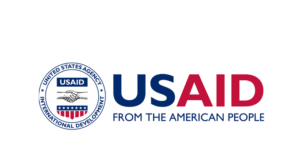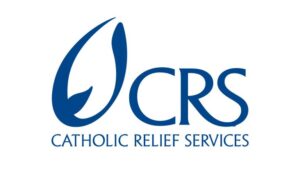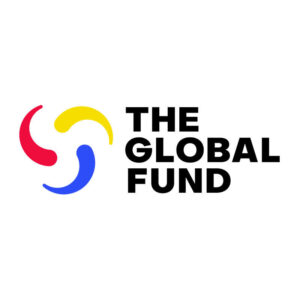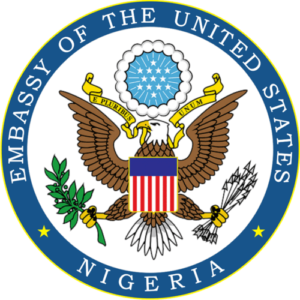What We Do
We are dedicated to serve and to make the world a better place.
Poverty Reduction
Nigeria’s economic growth and diversification have not translated into a significant decline in poverty levels. Based on the Harmonized Nigeria Living Standards Survey (HNLSS) of 2010, 69% of the population are estimated to be living below the poverty level, translating to 112.7 million persons. The poverty level varies widely across the geopolitical zones of the country, with higher levels in the northern parts of the country compared to the south, and in rural areas compared to urban areas.
Our Approach We offer a range of economic strengthening opportunities appropriate to the ages, health, social status, agro-ecology, and local labor markets of different individuals and their households. We will work with target households to develop a tailored set of interventions for each household that translates into economic empowerment.Education
The challenge
One in every five of the world’s out of school children is in Nigeria. Only 61% of 6-11 years olds regularly attend primary school and only 35.6 percent of children aged 36-59 months receive early childhood education. Nigeria has some 10.5 million out of school children; some 6million children of aged 3-5 years are not currently attending Early Childhood Development (ECD) and 8.5 million children of aged 6-11years which is the official primary school age are out of school; this figure is the highest in the world. The education deprivation in Nigeria is driven by various factors including economic barriers, social cultural norms and practices that discourage attendance in formal education, especially for girls. Our Approach ELSOPHI facilitates school enrolment and improves learning outcomes for children in preschool, basic and secondary schools.Health
Nigeria has one of the most underdeveloped primary health care system. Infectious diseases, maternal mortality, infant mortality and malnutrition are the main public health challenges facing the country. It was reported that almost every year, approximately 58,000+ young mothers are dying because of inaccessible and poor maternal health care services in Nigeria. 35% of women received no pre-natal care, and more than half of new pregnant women received no skilled birth attendance. Almost 45% of recent births received no protection against neonatal tetanus. Only 23% of the children between the ages of 12-23 months received all vaccination as per the national program, this indicates that a number of children are still vulnerable to preventable life threatening diseases. With high maternal mortality of 814/100,000 live births and infant mortality rate of 70/1000 live births and other poor development indicators, lifelong risk remains high for young children, women and the general adult population in Nigeria. Given this current scenario and the catastrophic health care burden on individual, family and the society on a whole, it is imperative to ensure availability, accessibility and affordability of quality health care services across the country, especially in rural areas.
Our ApproachThrough partnership with communities, we jointly identify their specific health challenges and foster lasting solutions to such challenges. We facilitate access to primary health care services for rural communities by; constructing primary health care centers, facilitate the posting of community health workers to rural clinics, supply clinic equipment to rural clinics and carry out awareness to improve the health seeking behavior of rural communities.Water Access
Nigeria is considered to be abundantly blessed with water resources, however, there is temporal and spatial variation in water availability. The country is drained mainly by the River Niger and its main tributary, the River Benue and their numerous minor tributaries as well as by the Lake Chad basin and the rivers that discharge into it. The country had made considerable investment in water schemes and related activities in addition to being blessed with abundant water resources, the desire to improve access to this resource was becoming more and more elusive because of the rapidly increasing demand for water. This rise in demand that was outstripping supply is consequent on high population growth rate coupled with increasing urbanization, and rising living condition as a result of economic growth. Other challenges facing Nigeria with respect to managing its water resources are shortages of water in urban and rural areas, competing water uses, degrading watersheds and water courses, fragmented and uncoordinated water resources development, poor data, all in a situation of rapid population growth and diminishing funds. The nation’s water sources are under serious threat from inadequate catchment management and widespread pollution, including the indiscriminate disposal of hazardous substances. The threats to the nation’s water resources are symptoms of poor and uncoordinated management of the resource. Water Aid Nigeria estimates that 55 million Nigerians, or 1 in every 3 Nigerians do not have access to clean water.
Our ApproachWe work to alleviate the root causes of water shortages and to address the key drivers of water borne diseases and the degradation of water resources by providing sustainable solutions including; Access to safe drinking water using low cost purification methods, technologies for rainwater harvesting and storage systems, sustainable extraction of water such as solar powered; boreholes, hand pumps and bore wells, water education for elders, children and larger community population, school based water education program, protection of rivers, lakes and other water sources. We focus on establishing Community Level Operation and Maintenance of water schemes, including the formation and strengthening of water sanitation and hygiene committees (WASHComs).Water Sanitation and Hygiene
The challenge
116 million people in Nigeria don’t have a decent toilet; that's 7 in 10 people who are more likely to be ill, more often while 60,000 children under 5 die a year due to poor water and sanitation.130 million out of a population of 191 million Nigerians lack access to improved sanitation while Open Defecation is practiced by over 45 million people in Nigeria, the extent of open defecation varies across states. Our ApproachBy seeking to understand and engage with women and men across communities on their practices, preferences, needs and ideas, we ensure women and men have access to sanitation and hygiene opportunities, services and solutions within their communities.Inclusive Eye Health
Inclusive Eye HealthFor the past 9 years, we have provided essential eyes care and treatment services for the vulnerable and marginalized in the communities we serve, we work with communities to prevent avoidable blindness. Through our quarterly eye health outreaches, we provide eye examination services, eye glasses for those with visual defect/impairment, referrals and financial support for eye surgical services for those requiring eye surgeries.
Disability and Inclusion:
We have worked deliberately for the inclusion of persons with disabilities in community development through participation in our projects and programs at community levels. While recruiting our community workforce, we have inclusive approach that ensures that persons with disabilities are represented.
Thematic areas of work
Our Partners







